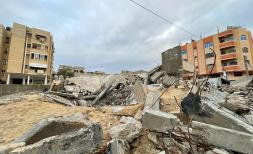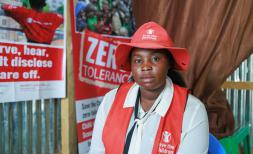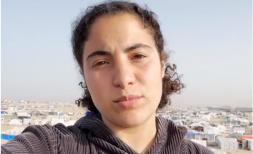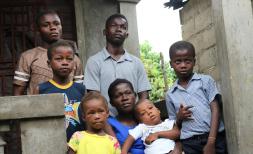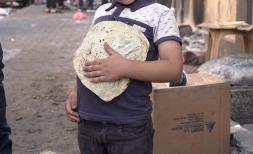Meaningful engagement: Critical to advancing rights for children with disabilities
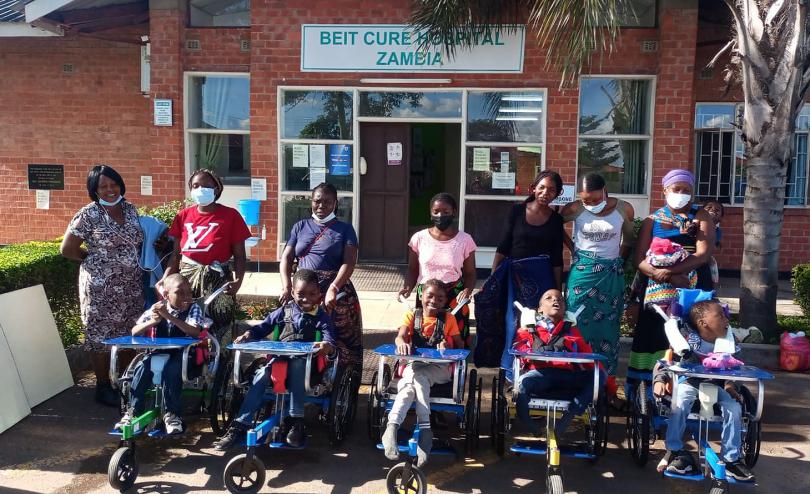
Parents and caregivers with their children at Beitcure Hospital, Lusaka, Zambia.
There are over a billion people with disabilities in the world and 240 million children with disabilities. Compared to children without disabilities, these children are [1] :
- 42 per cent less likely to have foundational reading and numeracy skills
- 49 per cent more likely to have never attended school
- 32 per cent more likely to experience severe corporal punishment
- 41 per cent more likely to feel discriminated against
- 51 per cent more likely to feel unhappy
- 20 per cent less likely to have expectations of a better life
In order to solve these inequalities, the world needs to listen to the experience and solutions proposed by adults and children with disabilities. They know best what works for them and what does not.
Both the United Nation’s Convention on the Rights of Persons with Disabilities (UNCRPD) and the Convention on the Rights of the Child (UNCRC) establish the right for equal participation for adults and children with disabilities. Yet, they are continuously left out of decision-making, policy dialogue and social interactions and face numerous barriers to participating in society on an equal basis with others. Meaningful partnership and engagement with representative organisations of persons with disabilities (OPDs) will help change this.
Save the Children commits to continued engagement with the disability movement at the Global Disability Summit
This week, the Global Disability Summit hosted by the government of Norway, Ghana and the International Disability Alliance is bringing together governments, civil society, private sectors, multilateral agencies, donors and foundations. It is expected to lead to concrete political commitments that will bring about genuine change for persons with disabilities.
At the Summit, Save the Children is pledging 12 commitments to continue our work to promote the rights of children with disabilities and their families and to become more disability-inclusive across our work around the world. Three of our commitments are specific to meaningful engagement with OPDs as we pledge to:
- Support the building of a diverse disability rights movement with emphasis on child rights and child participation,
- Promote underrepresented groups such as children with disabilities,
- Use our leverage to support their engagement with other social movements.
In our Disability Inclusion Policy we recognize that partnering with and investing in OPDs is critical to our mission. So, we are committed to strengthening OPDs to produce strong leaders with disabilities to further the ambition for children with disabilities to have equal rights across the world.
Below are some examples of how we, through our Disability Inclusion Accelerator, have worked with OPDs to promote the rights of children with disabilities.
Promoting the role of children with disabilities in governance in the Philippines.
By partnering with the Independent Living organisation Life Haven we have:
- Developed a Toolkit for Engaging Children with Disabilities.
- The Toolkit includes a set of inclusive tools, guidelines, and practices necessary to enable and capacitate government agencies, OPDs, Civil Society Organizations, development planners, and other advocates to create safe and disability inclusive programming.
- Delivered the Inclusive Education Bill Campaign to spur champion legislators to support the bill’s enactment, and raise awareness and public support for the Bill.
- The campaign included providing technical assistance to champion legislators and developing Information, Education and Communication materials in child-friendly and accessible formats.
- Learners with disabilities were supported to share their ideas by drafting letters of appeals and video interviews and take part in dialogues with legislators, committee hearings and public discussions.
Reaching communities and families with disabilities in Zambia
By partnering with the Zambia Federation of Disability Organizations (ZAFOD) & Down Syndrome Foundation Zambia we have:
- Worked with the Ministry of Education and Department of Social Welfare in the Ministry of Community Development and Social Services to disseminate key messages on a) disability rights and inclusion b) the importance of early education for children with disabilities and c) child protection for children with disabilities. We used the Viamo toll free phone platform through which we reached 24,729 listeners.
- Distributed re-usable menstrual hygiene starter packs for 300 girls with disabilities. Despite this, the demand for menstrual hygiene packs among girls with disabilities were beyond what the project could meet, posing a risk of school dropouts.
- The parents of the girls we did reach committed to ensuring that their girls continue to attend school even during their menstrual periods.
- Provided community-based psychosocial support for 125 children with disabilities and their families affected by COVID-19 through engagement of religious leaders and community welfare assistant committees in ten different communities.
- The support included counselling, coping mechanisms and PPE supplies together with adding them to the social protection list to help them cope with loss of livelihood and trauma caused by the pandemic.
Partnering with OPDs is a first step to realise equal participation
Since we have increased our partnerships with different OPDs, we have been able to scale up our work on disability inclusion and ensure safer and more rights-based solutions for the issues faced by children with disabilities and their families.
We therefore urge other development and humanitarian actors, including governments and civil society, to increase their efforts to support meaningful engagement of adults and children with disabilities by:
- Mapping out OPDs in the locations you work.
- Reaching out to OPDs even when there isn’t a specific opportunity to collaborate to hear about their work and see whether there are any areas you could work together on.
- Asking persons with disabilities, through OPDs or other means, to share their experiences and ideas when conducting situation analyses and needs assessments.
- Budgeting for meaningful engagement and accessibility in projects to allow participation without barriers.
With this more proactive approach and willingness to collaborate with OPDs, we hope to make a positive change in the lives of children and adults with disabilities.
[1] United Nations Children’s Fund. (2021). Seen, Counted, Included: Using data to shed light on the well-being of children with disabilities - UNICEF DATA
